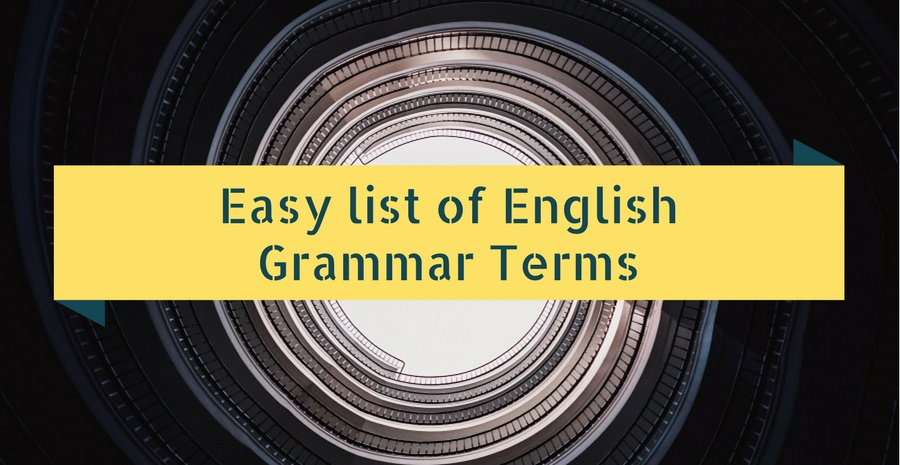
– Easy list of English Grammar Terms –
Feel free to leave a comment if you find any errors or if you have any suggestions to make to improve this lesson.
Here is a list of all the basic grammar terms you should know before starting to learn english. It will be useful for beginners as well as advanced learners. All the grammatical terms are explained with examples.
ADVERB
It’s used to clarify or modify the meaning of a verb, an adjective, another adverb or an entire proposition, for example when, where and how something happens:
- We talked about it yesterday.
- I’ll wait here.
- Read the text carefully.
ADVERB OF FREQUENCY
Adverbs of frequency describes the frequency at which something happens:
- I usually eat at home.
- These lessons are often very boring.
AUXILIARY VERB
Be, Do and Have are used with other verbs to form passive times and forms. They are auxiliary verbs:
- I’m not working tomorrow.
- What did she say?
- The conference has been canceled.
GERUND
A gerund is a form ending in -ing of a verb used as a noun:
- Smoking is not allowed at the back of the bar.
- I’m not keen on flying.
INFINITIVE
An infinitive is the basis of a verb (come, go, etc …). It is used with or without ‘to‘:
- This book is hard to understand.
- I’d like to book a table for eight o’clock.
- I must finish my homework today.
MODAL VERB
A modal verb is a verb like might, can or should. It is used to express possibilities, ask permission, give advice, etc.
- Can we meet later this afternoon?
- We should improve our english.
- They might think the house is too old.
PHRASAL VERBS
A phrasal verb is composed in two parts: a verb (for example ‘look‘) followed by an adverb or a preposition (for example ‘after‘). When used together, they often have a completely different meaning:
- He’s looking after the children.
- She looked the word up in her dictionary.
PREPOSITION
A preposition is used to connect and describe the relationship between a noun and a pronoun. Some common prepositions are: in, on, around, above, between, inside, near, for, with …
- He swam across the river.
- This movie is about the second World War.
PRONOUN
A pronoun takes the place of a name:
- The hotel is good but it’s too far from the airport.
- That’s my boss. Have you met him?
©Englishfornoobs.com